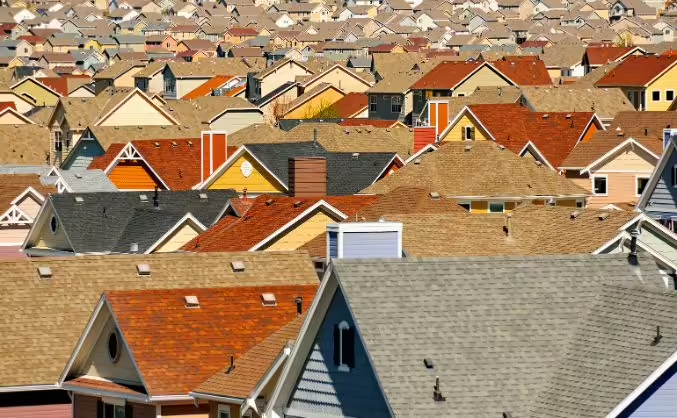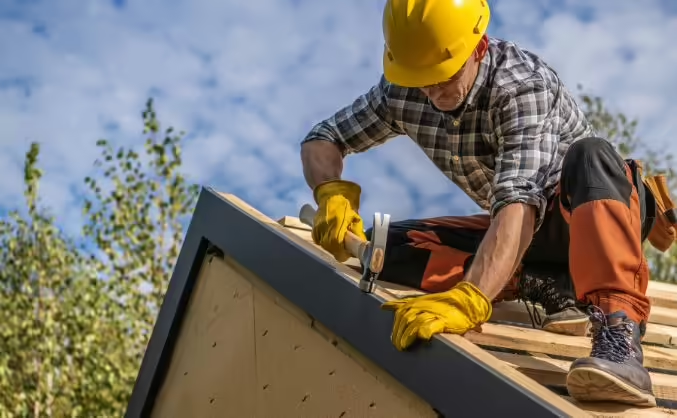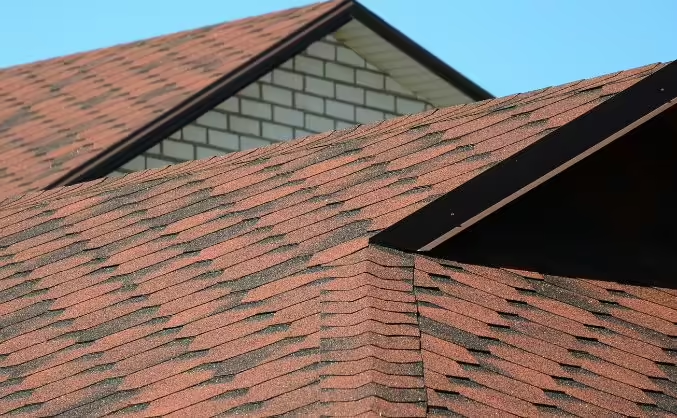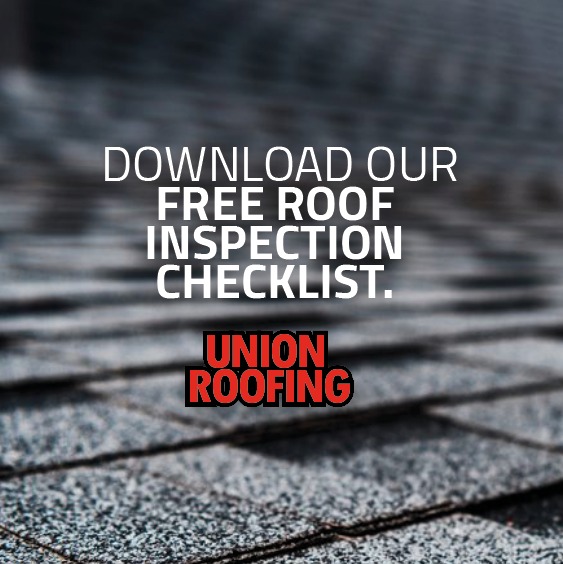Your roof is a strong barrier against heavy rain, hail, wind, snow, ice, falling limbs, and other debris. But like any essential part of your property, it won’t last forever. Homeowners frequently ask: “How can I make my roof last longer?”
Knowing the typical lifespan of a roof and the secrets to extending its longevity can save you serious money. You can also prevent unexpected leaks or future damage, making your home safer and more comfortable.
The Lifespan Lottery: Factors Affecting Your Roof’s Resilience
Several factors influence your roof’s lifespan, including:
- Material: Different materials have varying lifespans. For example, asphalt shingles typically last 15-30 years, while metal roofs can endure 40-70 years or even longer.
- Installation Quality: Proper roof installation is crucial for optimal performance. Improper installation can make your roof wear out faster by causing leaks or weak spots that can harm the building underneath.
- Weather Conditions: Harsh weather takes a toll on roofs. Areas with extreme heat, heavy snowfall, or frequent storms can expect their roofs to wear down faster.
- Ventilation: Proper ventilation helps prevent moisture buildup under the roof deck. Left unchecked, dampness can lead to rot and other serious problems.
- Maintenance: Regular maintenance, including inspections and repairs, can significantly extend your roof’s lifespan. Roofing experts can identify and address potential issues before they escalate.
Understanding Common Materials and Their Longevity

Here’s a quick breakdown of some popular roofing materials and their average lifespans:
- Asphalt Shingles: The most common and affordable roof is an asphalt roof, typically lasting 15-30 years. Architectural shingles are a premium type of asphalt shingle roof material. It offers slightly better durability, lasting up to 30 to 50 years.
- Metal Roofs: This popular roofing material is especially durable. Indeed, metal roofs can last 40-70 years or even longer. They resist fire, wind, and hail, making them a great choice for areas prone to severe weather.
- Slate Roofs: Offering a classic and elegant look, slate roofs are incredibly durable, lasting 75 to 100+ years. Slate roofs are costly but great for homes in stormy areas.
- Tile Roofs: Clay or concrete tile roofs are another long-lasting option, with a lifespan of 50 to 100 years. They’re particularly well-suited for hot climates as they effectively reflect heat.
Extending Your Lifespan: Proactive Maintenance Tips
Sadly, you can’t control the weather or completely prevent wear and tear. However, there are six practical steps you can take to maximize your roof’s life expectancy:
- Schedule Regular Inspections: Have a professional check your roof every 2-3 years to catch and fix problems early.
- Clean Your Gutters: Clogged gutters can lead to pools around your roof, which damages the shingles and underlying structure. Regularly clean your gutters to ensure proper drainage.
- Trim Overhanging Branches: Tree branches scraping against your roof can damage the shingles. Regularly trim branches that overhang your roofline.
- Treat Moss and Algae: Do you spot a greenish tinge on your roof? Moss and algae can eat away at your roof, shortening its lifespan. Tackle them early with a moss removal solution or a gentle bristled brush.
- Address Minor Repairs Promptly: Don’t ignore minor leaks or loose shingles. Prompt repairs prevent small issues from becoming major headaches.
- Consider Attic Ventilation: Proper attic ventilation helps prevent moisture buildup and promotes healthy roof conditions. Check to ensure your attic has adequate ventilation.
When is it Time to Replace Your Roof?
While proactive maintenance can extend your roof’s lifespan, there comes a time when you need a roof replacement. Here are some signs that your roof may be nearing the end of its lifespan:
- Visible Signs of Wear and Tear: Curling, cracked, or missing shingles are indications that your roof may need replacement.
- Leaks: Leaks are a clear sign that your roof is failing at its primary job: to protect your home.
- Moss or Algae Growth: Widespread moss and algae can indicate problems from trapped moisture which accelerates roof deterioration.
- Increased Energy Bills: A damaged roof can allow your home to lose energy, leading to higher utility bills.
- Age of Your Roof: Is your roof approaching the end of its typical lifespan for its material (as mentioned earlier)? If so, schedule an inspection to assess its condition.
Residential vs. Commercial: Same Principles, Different Hats
While this guide focuses on residential roofs, the principles of roof maintenance and longevity also apply to commercial roofs. Regular inspections, prompt repairs, and proper ventilation are all key to maximizing the lifespan of any roof.
However, commercial roofs often have unique considerations, such as roof type. For instance, commercial roofs tend to be flat or low-slope, requiring specific materials and drainage systems. Additionally, commercial buildings may have larger roof surfaces, demanding a higher level of expertise for installation and maintenance.
If you’re a commercial property owner, consult a roofing professional who specializes in commercial applications. That way, you ensure your roof receives the proper care and achieves its maximum lifespan.
Your Partner for Long-Lasting Roofs

At Union Roofing, we understand how important a sturdy, reliable roof is. We have been serving homeowners and commercial clients throughout Philadelphia and NJ for over thirty years.
Let our licensed and certified professionals extend the lifespan of your roof with these services:
- Expert Inspections: Our experienced roofers can identify potential problems and recommend the best course of action.
- Quality Repairs: Our skilled team can tackle any roof repair, from minor fixes to major overhauls. We use high-quality materials and back our work with a warranty.
- Professional Replacements: When it’s time to replace your roof, trust the experts at Union Roofing. We can guide you through the entire process, from material selection to expert installation.
- Preventative Maintenance Plans: We offer customized preventative maintenance plans to help you catch small issues before they worsen.
Don’t wait until a leak springs a surprise! Schedule a free inspection with Union Roofing today. We’ll ensure your roof provides reliable protection for your home or business for years to come.
Contact Union Roofing today to learn more about our services and how we can give you a long-lasting roof.

